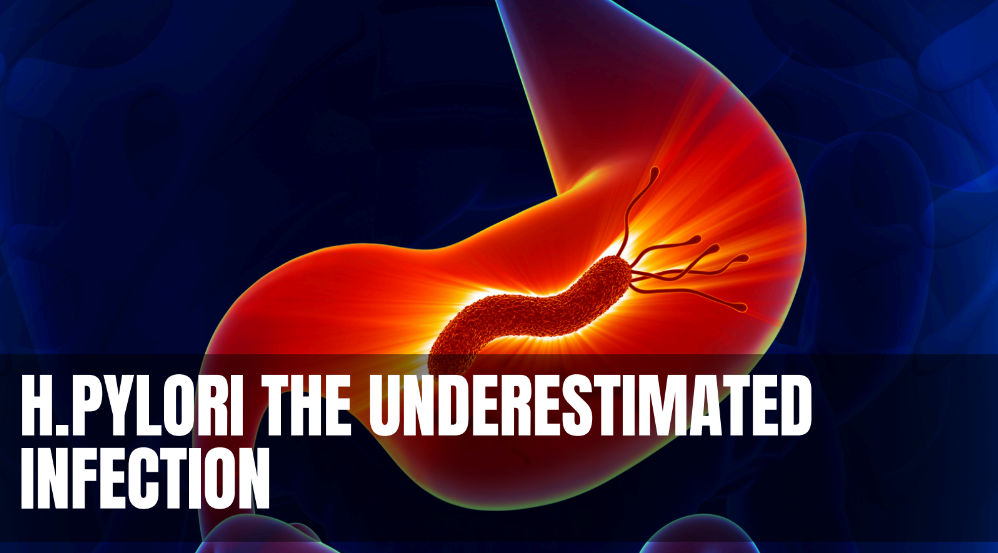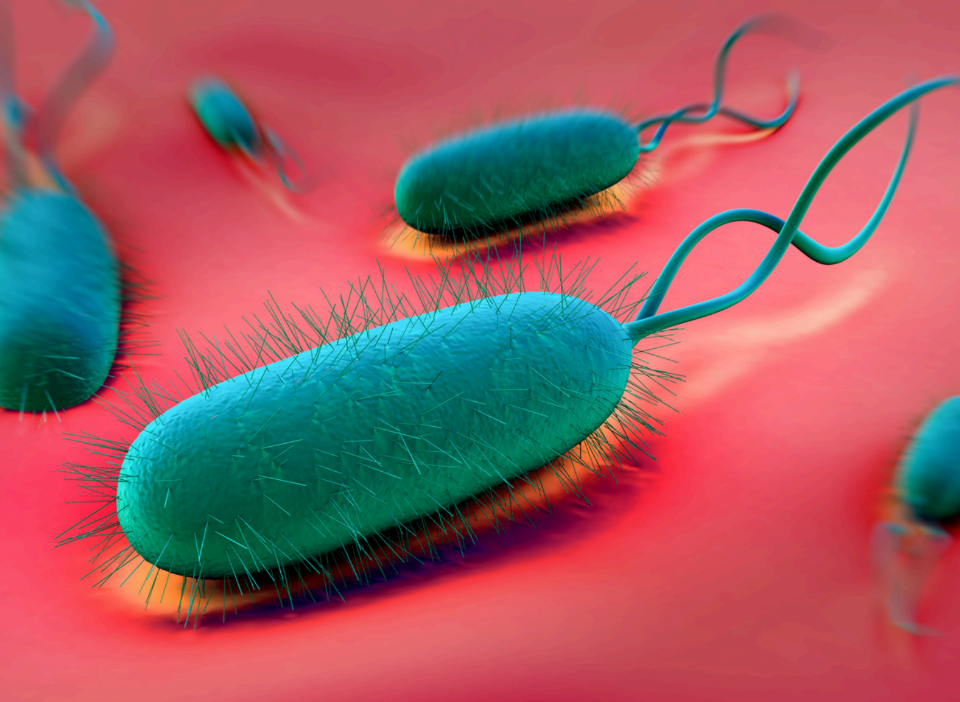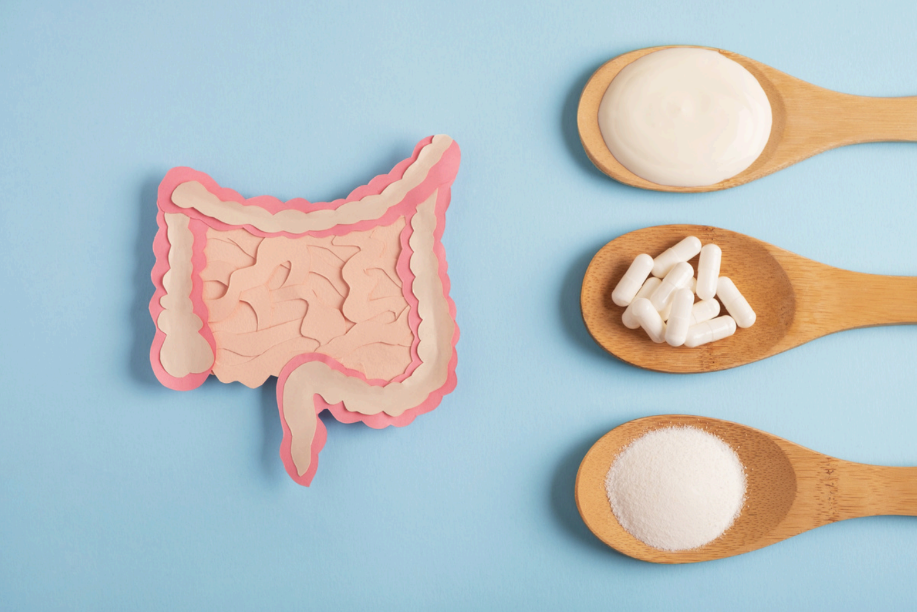
Friends:
Not that much is discussed about this, but this stomach bacteria called H. Pylori, is a significant health issue. Helicobacter pylori, a spiral-shaped Gram-negative bacterium, has been classified as a class I carcinogen by the World Health Organization and recognized as the causative agent for peptic ulcers, duodenal ulcer, gastritis, mucosa-associated lymphoid tissue lymphomas, and gastric cancer. Owing to their alarming rate of drug resistance, eradication of H. pylori remains a global challenge. H. pylori is a resilient bacteria strain that can be difficult to eliminate. Due to increased resistance, it may respond poorly to antibiotics, the only conventional medicine option available.
This bacterium lives exclusively in the human stomach and is the only known bacteria able to survive and grow in such an acid environment. As much as 80% of all gastro-duodenal ulcers are caused by H. pylori infections, although the infection is asymptomatic in most cases (70 to 80%).
It is also mildly contagious and can be food/water-borne.
In other words, Helicobacter pylori infections should be taken seriously.
Migraines, cardiovascular problems, and immune system conditions have also been linked to helicobacter pylori infections.
It is clearly a significant problem, given that 25% of Western populations are believed to be infected.

When the stomach has been damaged by these microbes, it is also no longer able to absorb Vitamin B12 or iron effectively, which also increases the risk of dementia”.
The good news is that a specific and fairly large range of probiotics and some key botanical compounds, i.e., Mastic Gum, Broccoli extract compounds, Cinnamon, spirulina, chlorella, AFA, etc., can compete directly with H. pylori, inhibits its adhesion to stomach tissues, and helps to restore the gut microbial environment.
As for the probiotics, these living microorganisms are comparatively more effective than the standard triple antibiotic regimen in managing symptoms related to pathogenic bacteria. The need for alternative therapy is better explained by the increasing rate of antibiotic resistance and the lowering of patient compliance with the standard treatment.

THE PROBIOTIC SPECIAL FORCES
Very special duties, abilities, and why:
Bacillus coagulans; Bacillus subtilis
These are hearty, acid-resistant, stabile spore bacteria that germinate in the upper GI tract and cover a lot of specific and general health territory on a temporary basis, which is good–they do their service, get out of the way, and don’t hang around for a long time in your gut. They create a burst of digestive enzymes, healing compounds to the GI membranes, and natural antimicrobial compounds inhibitory to lethal to a number of potential problem gut bacteria such as H.pylori, Escherichia Coli, Shigella, and Desulfovibrio with its gut/brain implications (linked to Parkinson’s).
Proprietary Tested Formula with introduction:
“After colonization, Helicobacter pylori will secrete toxins, causing damage to the body, lesions, and diseases. Due to the influence of many factors such as strain cross-infection, the resistance of Helicobacter pylori (H. pylori) to antibiotics increases, and the long-term unreasonable use of antibiotics has related adverse effects on the gastrointestinal micro-ecosystem, causing gastrointestinal dysfunction and gastrointestinal disorders—adverse reactions such as dysbacteriosis. Therefore, it is of great significance to seek natural non-toxic substances to prevent and treat diseases caused by Helicobacter pylori“.
“Domestic and foreign studies have shown that probiotics metabolize antibacterial substances such as lactic acid, hydrogen peroxide, bacteriocin, etc.
Probiotics also secrete H. pylori anti-adhesion compounds to down-regulate adhesion receptor sites, stimulate the expression of
mucins, and stabilize gastric mucosa.
A healthy and enhanced gastrointestinal tract generally better inhibits colonization of Helicobacter pylori (H. pylori).
At the same time, the following probiotics can regulate the host’s immune response by adhering to epithelial cells, and can also stimulate the body to produce IgA (immunoglobulin), which has an immune clearance effect on Helicobacter pylori (H. pylori)”. (1) Lactobacillus plantarum Lp05 has good resistance to gastric acid, inhibits the growth and proliferation of H. pylori, and significantly reduces the adhesion of H. pylori to SGC7901 (human gastric cancer cells), GES1 (human gastric epithelial cells), AGS (human gastric cancer cells) and MKN45 (human gastric cancer cells), creating conditions for the eradication of H. pylori. Studies have shown that the use of the described inhibitor made of Lactobacillus plantarum against H. pylori infection does not make H. pylori resistant and does not cause adverse reactions in patients during treatment.
(2) Lactobacillus acidophilus LA85 can effectively balance the intestinal flora, competitively exclude harmful bacteria after entering the body, and produce a variety of bacteriocins to inhibit pathogenic bacteria, with a broad-spectrum antibacterial effect. For people with intestinal flora disorders, oral administration can help balance intestinal flora quickly, inhibit the proliferation of spoilage bacteria, and enhance the intestinal mucosal barrier, while the bacteria can also help improve immunity.
(3) Bifidobacterium longum BL21 has excellent extracellular polysaccharide-producing properties and has immune-enhancing effects. It has been shown that endogenously produced (i.e., produced by intestinal flora) hydrogen has antioxidant, anti-apoptotic, anti-inflammatory, and cytoprotective effects, and this strain possesses some hydrogen-producing properties, indicating its potential application in anti-inflammatory conditions.
(4) Lactobacillus reuteri LR08 is a strong acid producer, which can effectively antagonize the growth of pathogenic bacteria. In addition, this strain can also remove pathogenic bacteria by adsorbing them to form co-precipitates and then excreting them with excretion. Also forms antimicrobial compound against H.pylori, “reuterin”.
(5) Bifidobacterium lactis BLa80 can effectively adhere to intestinal mucosal epithelial cells, forming a microbial protective layer to resist the colonization of the intestine by foreign harmful bacteria and inhibit the growth of harmful bacteria, in addition to enhancing the content of short-chain fatty acids, which are the main source of energy for colonic mucosal cells and promoting the proliferation of epithelial cells.
(6) Lactobacillus casei LC89 can produce short-chain fatty acids at high levels, which can not only directly provide energy to intestinal mucosal cells, but also regulate intestinal pH and improve inflammatory bowel disease of the organism. Its lactobacillus preparation can effectively improve the host’s inflammatory bowel disease and relieve the symptoms of abdominal pain, diarrhea, and loss of appetite caused by inflammatory bowel disease through animal tests and human tests.
In conclusion, the smart use of specific probiotics and botanicals, either alone or in conjunction with antibiotics, is the system of health and medicine, called Complimentary
